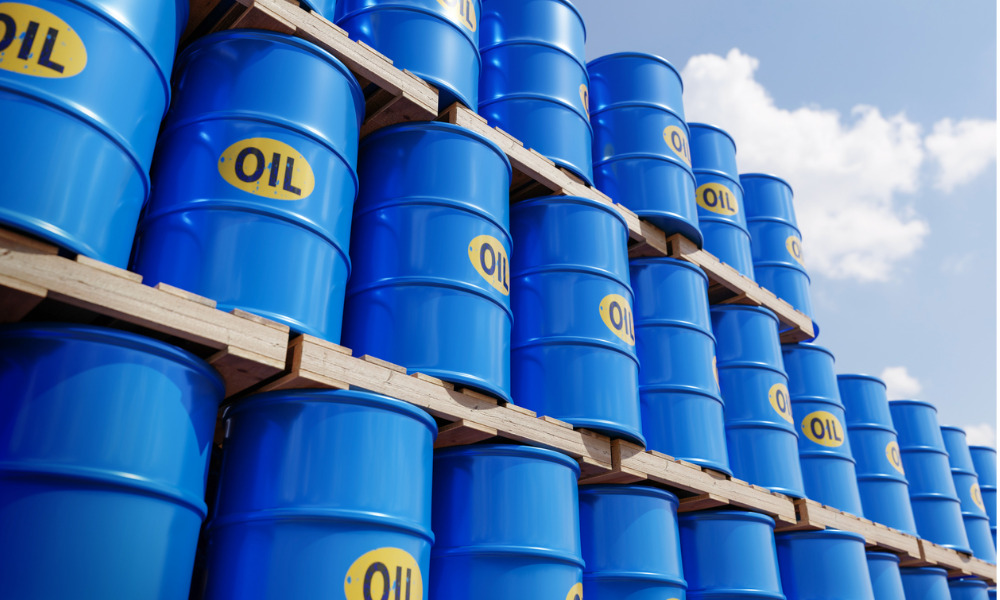

Global oil demand growth is slowing down sharply as economic activity weakens in key countries, the International Energy Agency said as it slashed estimates for this quarter.
The IEA sliced nearly 400,000 barrels a day from assessments of consumption growth for the final three months of 2023, and continues to expect that growth rates will decelerate dramatically next year. Meanwhile, soaring production from the U.S., Brazil and Guyana is offsetting production cuts by Saudi Arabia and its OPEC+ allies, it said.
“Evidence of a slowdown in oil demand is mounting,” the Paris-based adviser said in its monthly report on Thursday. “The increasingly apparent loss of oil demand growth momentum reflects the deterioration in the macroeconomic climate.”
Crude prices slumped to a five-month low below $73 a barrel in London earlier this week on signs of growing oversupply. Futures have tumbled around 23% since late September as China’s economic outlook darkens while output swells from a number of exporters.
Fresh production cutbacks announced by OPEC+ on Nov. 30 look set to eliminate a glut previously anticipated in the first quarter, but they come at a cost for the cartel: the 23-nation coalition will see its share of the global market whittled to the lowest level since its formation seven years ago, the IEA said.
They’re also helping to finance a “record-smashing” supply wave from the U.S., which is “squeezing Saudi Arabia and other core Middle Eastern producers out of prime export markets,” the report said. American oil production exceeded 20 million barrels a day in September, defying predictions that cost inflation would check its growth.
“The continued rise in output and slowing demand growth will complicate efforts by key producers to defend their market share and maintain elevated oil prices,” the IEA said. A significant supply rebound from OPEC nation Iran is also tempering curbs by other members.
Europe, Russia and the Middle East drove the agency’s downgrade of fourth-quarter demand estimates. Europe was “particularly soft amid the continent’s broad manufacturing and industrial slump,” the IEA said. Higher interest rates are also a headwind, the agency noted.
Global oil demand growth remains on track to increase by a substantial 2.3 million barrels a day this year to average a record 101.7 million a day, bolstered by the remnants of the post-pandemic rebound in consumption.
Yet growth will slow by roughly 50% next year to 1.1 million barrels a day as that rebound peters out, and consumers turn to more efficient or electric vehicles. The rise in consumption can probably be satisfied by a similar increase in non-OPEC+ supplies, the agency said.
Such a demand slowdown would help put countries on the path agreed at COP28 climate talks in the United Arab Emirates this week, which culminated in a pledge to transition away from fossil fuels.

Elsewhere in Utah, Raymond James also welcomed another experienced advisor from D.A. Davidson.

A federal appeals court says UBS can’t force arbitration in a trustee lawsuit over alleged fiduciary breaches involving millions in charitable assets.

NorthRock Partners' second deal of 2025 expands its Bay Area presence with a planning practice for tech professionals, entrepreneurs, and business owners.

Rather than big projects and ambitious revamps, a few small but consequential tweaks could make all the difference while still leaving time for well-deserved days off.

Hadley, whose time at Goldman included working with newly appointed CEO Larry Restieri, will lead the firm's efforts at advisor engagement, growth initiatives, and practice management support.
Orion's Tom Wilson on delivering coordinated, high-touch service in a world where returns alone no longer set you apart.
Barely a decade old, registered index-linked annuities have quickly surged in popularity, thanks to their unique blend of protection and growth potential—an appealing option for investors looking to chart a steadier course through today's choppy market waters, says Myles Lambert, Brighthouse Financial.
